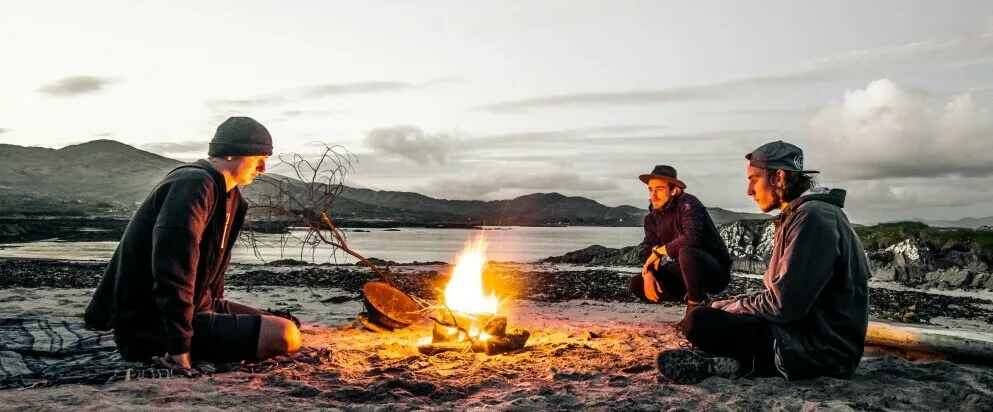Camping 101: The Ultimate Guide to Camping for Beginners
There’s nothing quite like escaping the hustle of the city and immersing yourself in the tranquility of nature. Whether you’re seeking solitude or a fun-filled weekend with family and friends, camping offers the perfect retreat. As an avid outdoorsman, I’ve gathered years of experience and am excited to share my approach to camping, especially for those just starting. This guide will walk you through every step, from planning your first trip to packing the essentials, so you can head out with confidence.
What You’ll Learn:
- How to plan your first camping trip.
- Camping essentials: packing, setting up, cooking, and more.
- Gear recommendations for beginners.
- Sample packing list and meal planner.
Types of Camping:
Before diving into the nitty-gritty of camping, it’s essential to understand the different types of camping and where they take place. Here’s a quick rundown:
- Proximity to Road Access:
- Front Country Camping: Also known as car camping, this is perfect for beginners. You’ll have access to facilities like washrooms and can easily bring all the gear you need in your vehicle.
- Backcountry Camping: This is more for the adventurous. You’ll need to hike, paddle, or bike to reach your campsite. It’s riskier and requires more experience, but the payoff is unparalleled solitude and connection with nature.
- Type of Land:
- Publicly Managed Land: These are managed by the government and may require a fee. They’re generally well-maintained and have some facilities.
- Wild/Freedom/Dispersed Camping: Free and outside of managed parks, often on public land. This is for those who prefer a more rugged experience.
- Private Campgrounds: These offer more amenities and are often pricier, but they’re a good choice if you want a balance of comfort and nature.
Finding Campsites:
As a beginner, I always recommend starting with front country camping. It’s accessible, and you can learn the basics without being too far from help if needed. Booking a site through national, state, or provincial parks is a great way to ensure ease and access to facilities.
Planning & Preparation:
Here’s how I plan my camping trips:
- Choose a Destination & Book Sites:
- Consider factors like distance from home, available facilities, activities, and how popular the site is. Reservations might be necessary, especially during peak seasons.
- Choose a Time to Go:
- Summer is ideal for beginners. The weather is generally forgiving, and you’ll have longer daylight hours to set up camp and explore.
- Choose Trip Duration:
- For your first trip, I recommend two nights for car camping. It’s enough time to settle in and enjoy without feeling rushed. If you’re keen on trying backcountry camping, start with a single night close to home.
- Prepare a Route Card:
- This is a simple document that includes campsite details, dates, and emergency contacts. I always leave this with someone not on the trip for safety.
- Gather Tent Camping Essentials:
- We’ll cover the essential gear in the next section, but make sure you have everything ready and tested before you leave.
- Test Drive:
- To ensure you’re comfortable with your gear, set up camp in your backyard or a local park. This gives you a chance to iron out any issues before heading into the wild.
Clothing & Gear Essentials:
When it comes to gear, I stick to the essentials but ensure everything is high quality. Here’s what I pack:
- Safety Gear:
- First Aid Kit, Satellite Communication Device, Map & Compass.
- Shelter Gear:
- Tent, Sleeping Pad, Sleeping Bag, and a Camping Pillow.
- Cooking Gear + Food:
- Water purification system, stove, cooking utensils, and a well-thought-out food plan.
- Clothing:
- I bring clothes for the day, the campsite, sleep, and rain. A good pair of hiking boots or shoes and sandals are also essential.
- Miscellaneous:
- A sturdy backpack, dry sacks, toiletries, and any personal items that add comfort to your experience.
Camping Tips for Beginners:
Finally, here are a few practical tips I’ve picked up over the years:
- Arrive early: It gives you plenty of time to set up camp and get familiar with your surroundings.
- Pack light but smart: Only bring what you need, but don’t skimp on essentials.
- Stay organized: Use dry sacks and packing cubes to keep your gear organized and easily accessible.
- Practice Leave No Trace principles: Always respect nature and other campers by leaving your campsite as you found it.
Camping is a skill that grows with experience, and the more you camp, the more confident you’ll become. With these tips and a bit of planning, you’ll be well on your way to enjoying the great outdoors like a pro. Happy camping!
